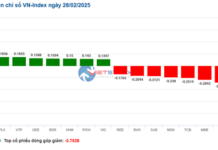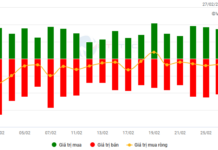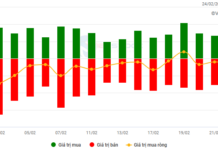The issuance of pink books has been streamlined into two separate processes. Process number one is for project investors and consists of five steps, with a resolution time of 30 working days from the date of receiving a valid application. The second process is for customers and entails nine steps, to be completed within 15 working days from the date of receiving valid documents. Upon receiving the application, the Department of Natural Resources and Environment collaborates with the Departments of Finance, Construction, Planning, and Investment to inspect and proceed with the issuance of the pink book.
Despite the existence of this streamlined process, many projects are yet to have customers receive their pink books, according to the journalist’s investigation. The leader of the Khanh Hoa Land Registration Office revealed that currently, the Vega City Nha Trang project (now known as Libera Nha Trang) is the only project that has been granted pink books, but even then, the number is limited. “To obtain a pink book, a project must go through multiple appraisal steps. Many projects may be encountering obstacles, which is why they haven’t met the requirements yet,” the office leader explained.
At the recent forum titled “Unblocking the Flow of Tourism Real Estate,” the Vietnam Real Estate Brokers Association informed that the market witnessed the successful transaction of 726 tourism and resort real estate products in 2023. However, the transaction volume has not recovered as expected due to legal hurdles faced by some projects.

Khanh Hoa province is aggressively developing tourism real estate projects. |
Nguyen Van Sinh, Deputy Minister of Construction, attributed the challenges faced by real estate in general and officetel and condotel in particular to legal issues, land pricing, clearance, and pink book issuance. He also pointed out that adjusting the planning to ensure harmony between different levels of planning is a time-consuming process.
Deputy Minister Nguyen Van Sinh also mentioned the Prime Minister’s strong and focused directions in addressing obstacles related to real estate projects in many localities, which has contributed to increasing the market supply. Additionally, the government’s submission of amendments to crucial laws related to real estate to the National Assembly for approval has helped untangle legal knots in the market.
Recently, the government also assigned the Ministry of Justice to sign, on behalf of the government, a report to the National Assembly’s Standing Committee, proposing the inclusion of the 2023 Housing Law, the 2023 Real Estate Trading Law, and the 2024 Land Law in the National Assembly’s law-building program for 2024. This means these laws will come into effect in July 2024, six months earlier than initially planned.
According to Hoang Hai, Director of the Housing and Real Estate Market Management Bureau under the Ministry of Construction, if the guiding documents are promptly approved with more stringent and clearer provisions, it will help resolve issues related to condotels and officetels. “In the future, tourism real estate will have potential as the market recovers under the influence of the new laws. This is good news for provinces developing tourism,” Mr. Hai assessed.
|
Large inventory remains According to the Vietnam Real Estate Brokers Association, in the first quarter of 2024, the market recorded the launch of 9,970 tourism real estate products, of which more than 97% were inventory from previously launched projects. Only five new projects were introduced, offering 326 products, a 60% decrease compared to the same period last year. It is predicted that the supply of tourism and resort real estate in 2024 may improve by about 20% compared to 2023. |
By Ky Nam



































